Shark Attacks Australia 2022
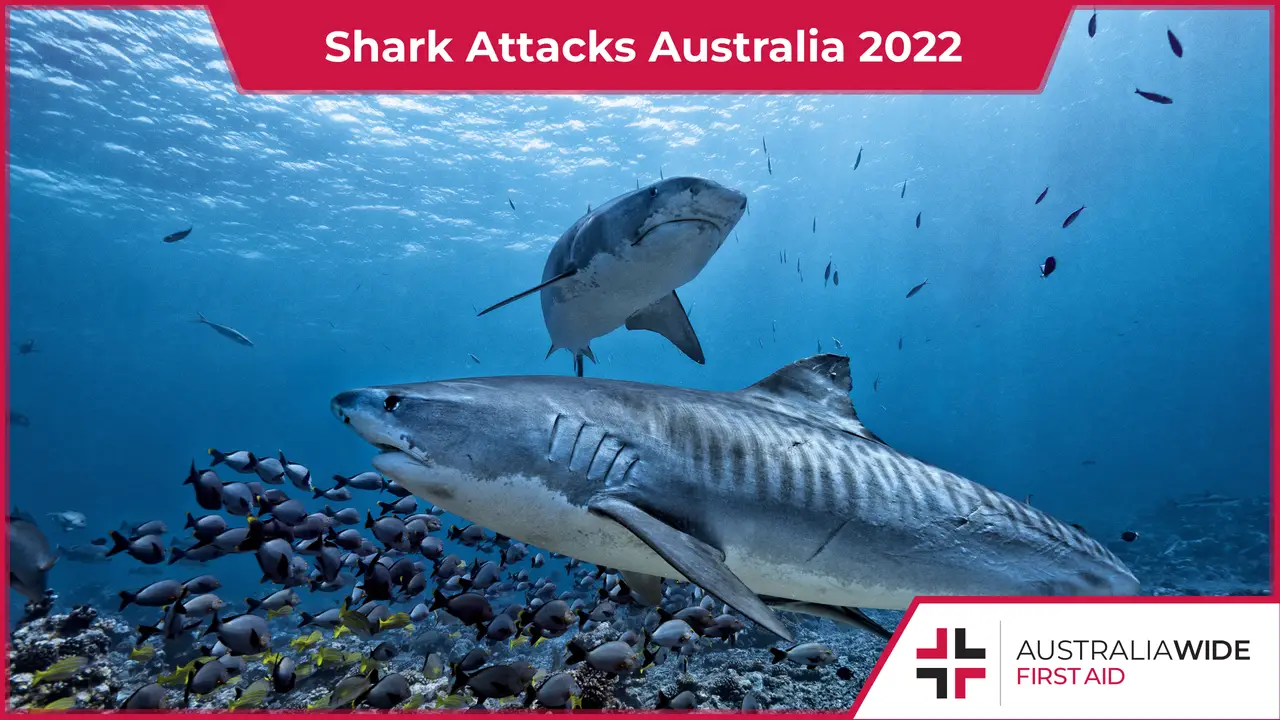

Australia is known for many things, beautiful beaches, the friendly people, and the variety of deadly animals found on both the land and in the sea.
Australia’s oceans are home to some of the world’s most dangerous shark species, so it is no surprise that Australia is one of the deadliest countries in the world for human/shark incidents.
An important resource to make informed decisions about the safety of the oceans for both humans and sharks is the Australian Shark-Incident Database. This database is coordinated by Taronga Zoo and reports the details of all human/shark incidents throughout the year.
Continue reading for more information about sharks and the prevalence of shark/human interactions in Australia in 2022.
According to the Australian Shark Incident Database, there is a record of 9 shark incidents in 2022 as of January 2023.
This record has yet to be updated to reflect the comprehensive record of all incidents in 2022.
The Australian Shark Incident Database considers a shark/human interaction to have occurred if the person was alive at the time of the incident, they were in the water or a small watercraft (such as a kayak, surfboard, bodyboard, etc.) and it is determined that the shark attempted to bite the person, equipment being worn or used or the small watercraft.
All these human/shark interactions were unprovoked, where the shark has attempted to bite the person and the person has not engaged in behaviour to provoke the animal. At the time of the incident:
Wobbegong, Tiger Shark, White Shark, and Whaler Shark were the species of shark recorded for eight of the nine incidents recorded in 2022. These human/shark interactions resulted in:
The deadly interaction occurred in Little Bay, Sydney, where a 35-year-old man was fatally mauled by a Great White Shark while he was swimming around a popular fishing location.
Marine scientists explained that human/shark interactions such as this are ‘rare and uncommon’, with the animal likely to have been drawn in by other factors such as the current, in search for warm water, or chasing other prey.
Local lifesavers have also observed that this was not preventable as the man was swimming in an area too deep for shark nets to be deployed efficiently.
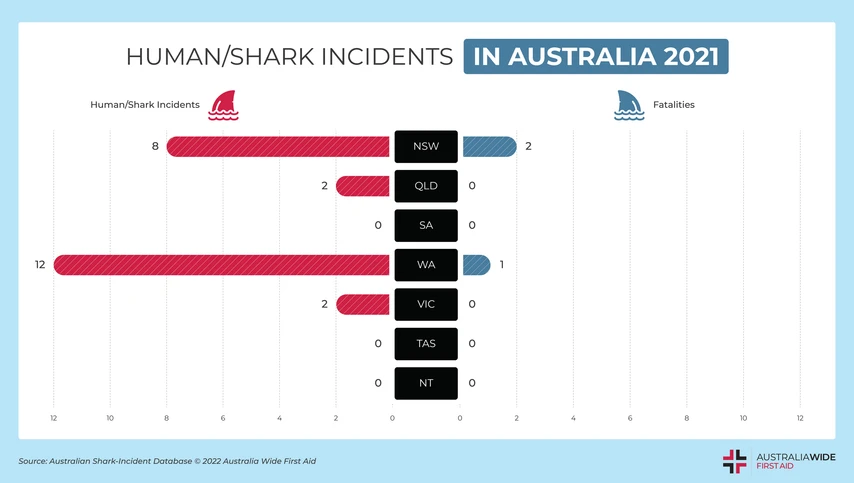
In 2021, the Australian Shark Incident Database reported a total of 24 human/shark incidents in Australia. This number is significantly higher than the 2022 number due to the incomplete records for 2022. 19 of these incidents were unprovoked, were at the time of the incident:
The remaining 6 incidents were recorded as provoked due to the victim either enticing the shark or moving into proximity of the animal. There were no dominant species responsible for the incident, with Wobbegongs, White Sharks, Tiger Sharks, Bull Sharks, and Reef Sharks recorded as the species for incidents across the country. The 2021 shark/human interactions resulted in:
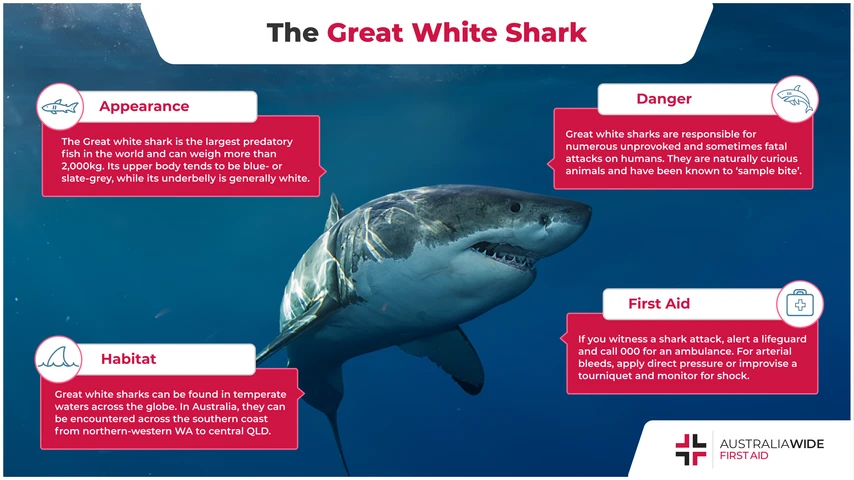
As of January 2023, the International Shark Attack File, which records all shark/human interactions worldwide, has comprehensive data for 2021. This report shows that there was a total of 137 shark/human interactions in 2021, with 73 cases unprovoked and 39 provoked.
Australia was the second leading country for unprovoked shark attacks with 12 cases, with the United States of America (USA) leading with a total of 47 unprovoked bites. Australia’s total was lower than the recent five-year average of 16 cases, while the USA’s average increased by 42% compared to the prior year.
The fatality rate was higher for Australia, with 3 unprovoked cases resulting in a fatality compared to only one case in the USA. This is likely due to Australia being home to over 182 species of shark, including the three deadliest species – the White Shark, Tiger Shark, and Bull Shark (also known as a Whaler Shark). These three species of shark are involved in 96% of unprovoked, fatal shark Attacks in Australia.
From 2021-2022, New South Wales and Western Australia were the most common states for human/shark interactions in Australia, with 14 cases within each state. This was followed by Queensland with 3 cases and Victoria with 2 cases.
From the 33 cases currently recorded for 2021 and 2022, 27 occurred on the coast, while the remaining 6 occurred either in the ocean or a river.
Despite popular belief that the hotter months attract more shark attacks, the Autumn months of March through to April recorded the most shark interaction in 2021. Only 18 incidents over 2021 and 2022 recorded the time of the incident, with most interactions occurring between 6am to 8am, 11am to 12pm or 3pm-5pm.
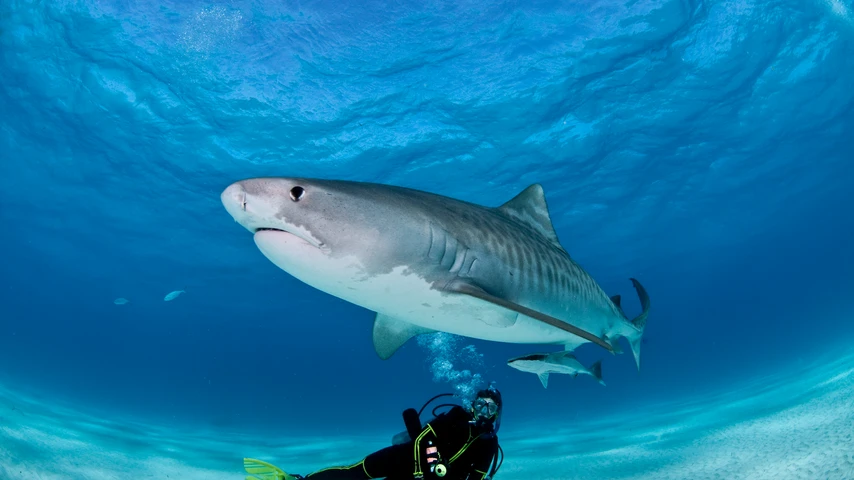
Despite many popular theories as to why shark attacks occur, experts believe that as many as 75% of unprovoked attacks occur due to motives outside of feeding, such as defending territory, interfering with courting behaviour, or the human is perceived as a threat.
These behaviours require the same use of the shark’s teeth, body mass, speed, and agility as they would for feeding behaviours.
This means sharks will use their mouth and teeth to explore objects they are curious about, which leads to lacerations from the bite when they are figuring out a human in their vicinity.
We run certified First Aid courses throughout all major Australia citys. Find a location near you.
With the millions of people frequently venturing into the oceans around Australia, the number of shark attacks that occur each year is quite minimal.
Experts cannot determine what exactly motivates a shark to attack a human, which can be seen in the wide variety of locations, times, and activities that victims are engaging in at the time of the incidents.
While the final data for 2022 is still to be confirmed for the Australian and International Shark Attack Reports, Australia remains a country with a higher risk of shark attacks occurring, despite how uncommon they can be.
For more information or to learn how to manage shark attacks and shark attack injuries, head to our website to sign up for one of Australia Wide First Aid’s general or childcare first aid courses.

February 10, 2023
Home to some of the world's most dangerous shark species, Australia is one of the deadliest countries when it comes to human/shark incidents. In this article, we explore the number and outcome of shark/human incidents that occurred in Australia in 2022, to date.

December 20, 2022
Five diseases accounted for more than one-third of all deaths registered in Australia in 2021. And though our overall mortality rate remains low, Dementia is narrowing the gap to become one of Australia's deadliest diseases.
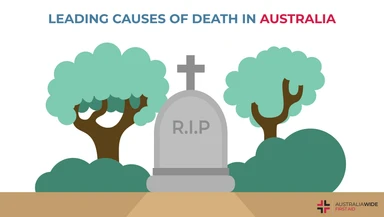
October 24, 2022
Health statistics are an invaluable tool for measuring the health of Australians and targeting prevention and treatment resources accordingly. In this article, we compare Australia's mortality rating from 2019 to 2020.